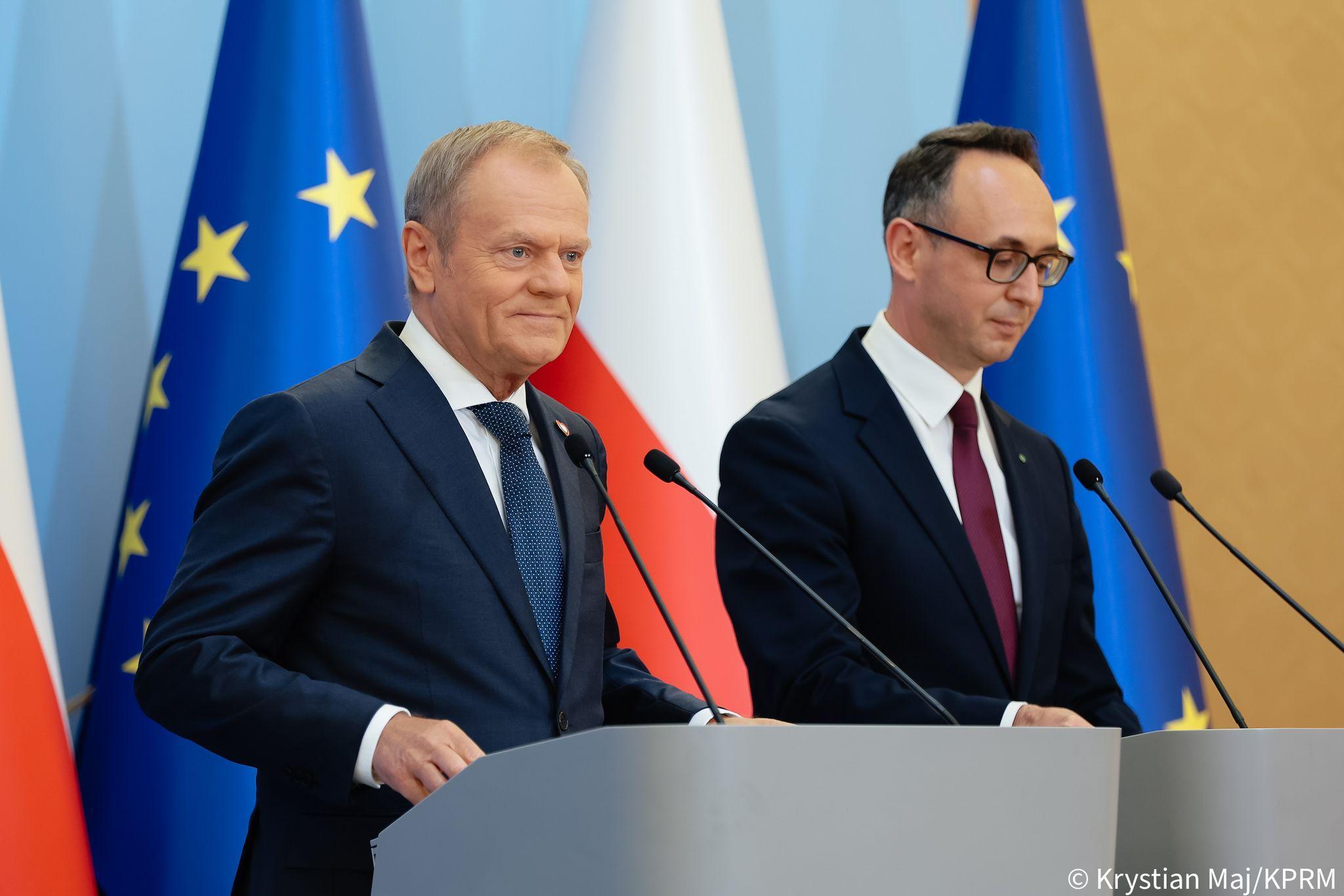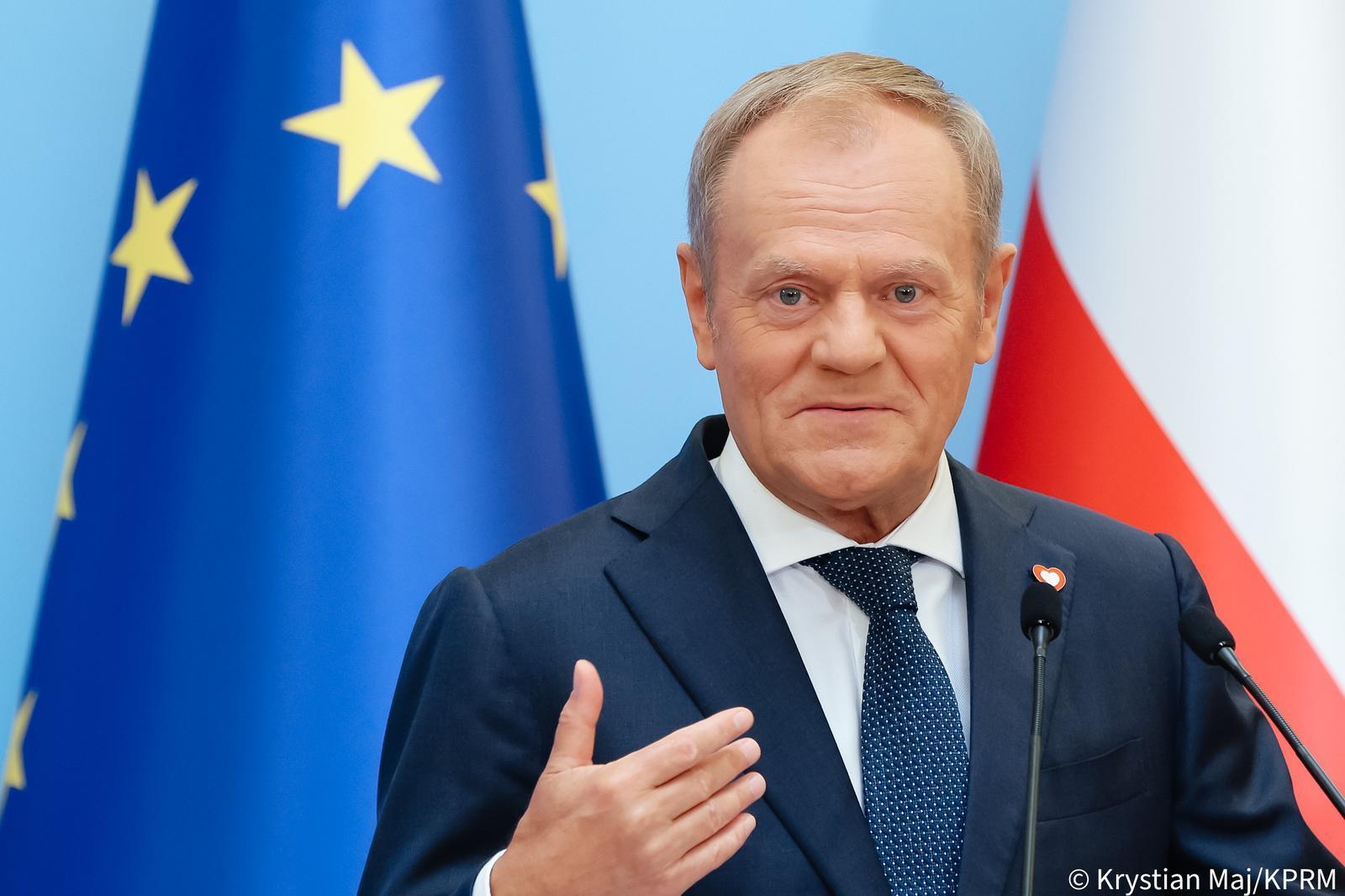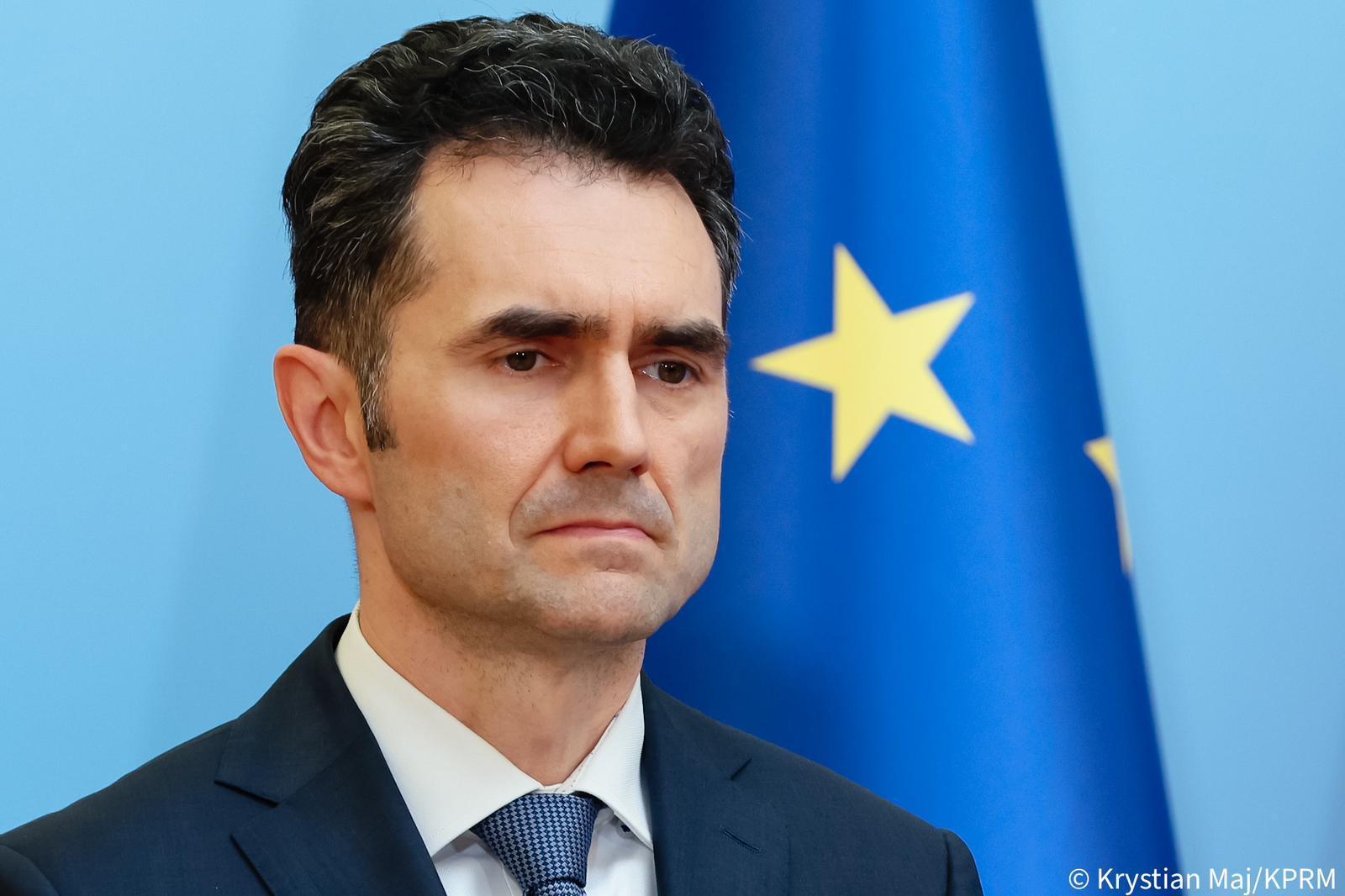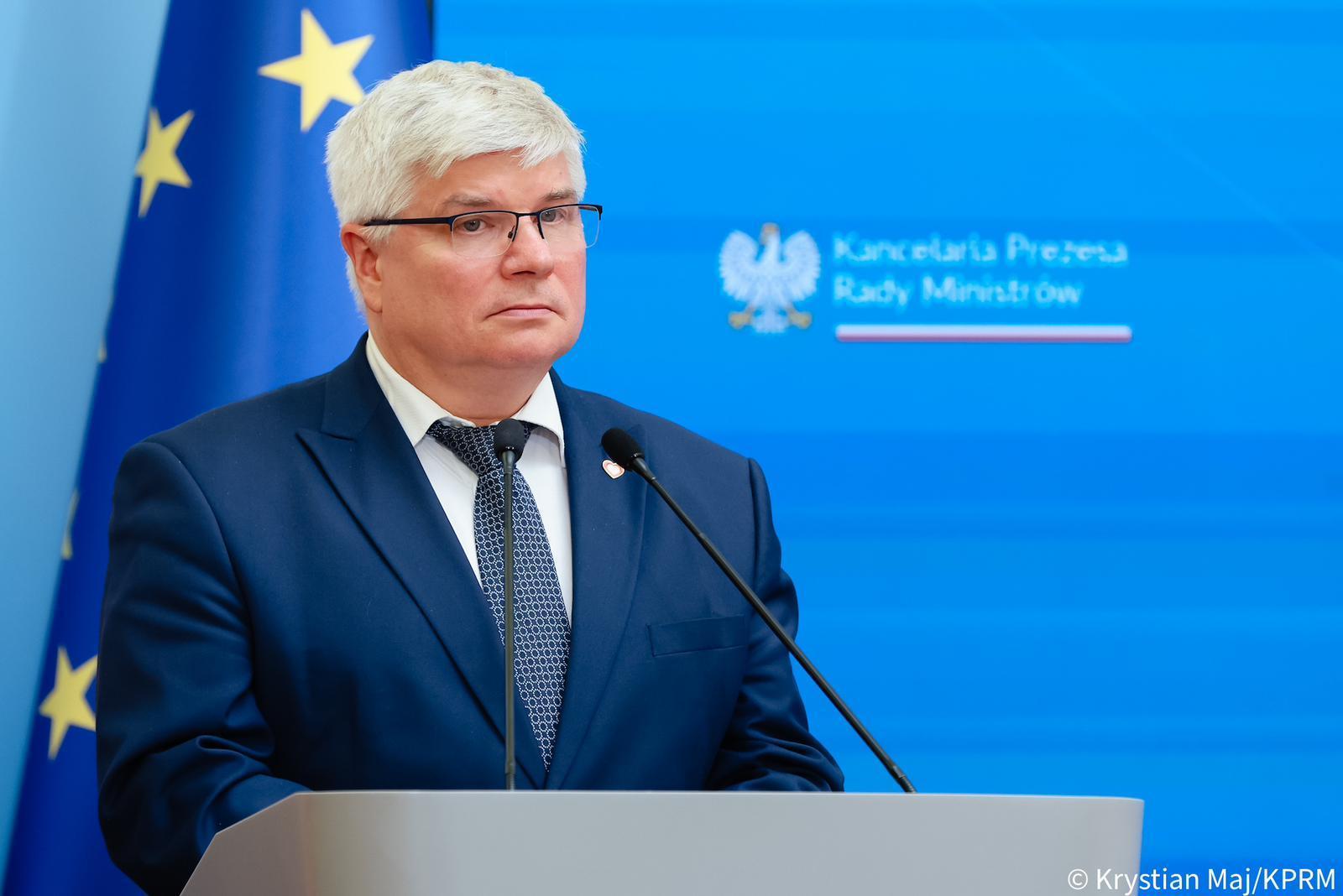Triple jump into future - a new era for transport in Poland
26.06.2024
The Central Communication Port project required many changes that made it more realistic. Prime Minister Donald Tusk outlined key assumptions of the development of Poland's communications network at a press conference on Wednesday. The project comprises three key elements, the implementation of which will result in the so-called triple jump. Firstly, Poland needs a high-speed rail network so that everyone can travel quickly between its major cities. Secondly, the country needs to develop its regional airports and ensure their accessibility to everyone. This part also takes into account the construction of the Baranów airport. The third element of this strategy envisages the development of LOT Polish Airlines. These comprise a three-pronged strategy.

A host of issues plaguing the Central Communication Port project
The Central Communication Port project was doomed to face a series of challenges - delays, inefficient spending , as well as expropriations without making people whole - due to the manner in which the previous cabinet wanted to make it happen. One of the many examples of these issues is the fact that the Central Communication Port, which is an infrastructure project, was overseen by the Ministry of Funds and Regional Policy, which was not only illogical, but also led to many issues. This is going to change - on 1 July, the Central Communication Port company will be taken over by the Ministry of Infrastructure so that infrastructure projects are all carried out by the same entity and can be managed in a comprehensive manner.
“I do not understand what the previous government was thinking, when they decided not to task the Ministry of Infrastructure with developing a project as crucial as the Central Communication Port.”
said Minister of Infrastructure D. Klimczak.
Maciej Lasek, the government plenipotentiary for the Central Communication Port added that
“Last year, the company managing the Central Communication Port filled a case with the public prosecutor's office against another state-owned company - PKP-PLK. Simply put, the two companies were not able to come to a consensus, and one of the reasons for that disagreement was the lack of cooperation between the two ministries.”
The current government had to cope with the unrealistic assumptions of the Central Communication Port project envisaged by its predecessors. The successful implementation required involving neutral and impartial experts to evaluate the concept and project activities to date.
“These people were tasked with presenting the current state of affairs as quickly, effectively, and objectively as possible. Given the political tensions and expectations surrounding this project, I asked them to refrain from turning this process into a political issue.”
said Prime Minister Donald Tusk during the press conference.
The team was also tasked with analysing Poland’s needs, so that the project remains in line with the needs of the country and future users, rather than with the vision of a particular political party. The audits revealed a number of irregularities related to the Central Communication Port project, mainly concerning its finances.
“Many people made a lot of money on this project. To date, the Central Communication Port cost us 2.7 billion złoty. . . . Somebody once said that the CCP acronym stands for “Crooks, Criminals and Pilferers”. I can only say that it was an apt summary. When you look at all the money spent, including on propaganda and promotional campaigns, and then compare it with the results achieved, it is clear that this issue was rampant in this project and could be seen by anyone.”
the Prime Minister stated.
The audit also confirmed significant delays across the entire Central Communication Port project, including key parts, such as the construction of a tunnel underneath Łódź, a project which encompassed the construction of two tunnels - for high-speed rail and other traffic. The latter was supposed to be finished in December 2021; however, it remains unfinished to this day.
“In December 2023 - two years later after this tunnel was supposed to be opened, the people who took over the responsibility for this project discovered that nothing has been getting done for a while.”
Prime Minister Tusk pointed out.
Other delays concern terminal design, as well as the decision concerning the location of the Baranów airport, which was supposed to be issued in July last year, but was poorly prepared.
“As of today, the decision has been submitted and is currently handled by the local voivode. These are not the only delays we are dealing with. The designs for the terminal and the airport were also 7-8 months behind schedule by the end of last year. That is why we are managing expectations and making these timelines more realistic today.”
said Mr. Lasek, Government Plenipotentiary for the Central Communication Port.
Poland as a megalopolis - connecting major cities by a high-speed rail network
The audit carried out by the government was used as a basis for new assumptions for the development of the transport network in Poland in order to establish a modern country-wide system that addresses local and regional needs, fit for the 21st century. The concept emerged back in 2009-2010.
“The key aspect - and the fundamental difference between what our predecessors did and what we have been doing and speeding up for several months now - is expanding the scope to cover all of Poland."
the Prime Minister stated.
“We want to develop a rational and financially viable project that is optimal from the point of view of Polish and international transport, as well as Polish economy and entrepreneurs. We will design and build it to extract the most value from the money spend.”
said Minister Klimczak.
Compared to the previous concept, the more realistic Central Communication Port project assumes fewer expropriations, as well as making it right for all those who feel wronged.
“I want to make it clear - we are working with ministers and voivodes to develop a model that will right the wrongs and ensure that everybody will be made whole if they are expropriated. Thankfully, the changes - mainly concerning the railway component of the project - are going to lower the number of required expropriations,”
Mr. Tusk pointed out.
The revised assumptions take into account the interests of Polish citizens, who want faster and more comfortable travel. That is why Poland is going to become a megalopolis, as the new concept covers the whole of Poland, rather than an enormous central hub.
“All major cities in Poland will be involved in this modern transport project. The proposed railway network that is being built right now will link Polish cities with each other, with Warsaw, and with the largest cities in Poland. This dense network will connect population hubs, carrying actual passengers."
said the Polish Prime Minister.
“The Central Communication Port project includes both new rail lines, as well as overhauling existing ones. It is intended to ensure cohesion between new and upgraded lines, as well as regional links, which do not see comparable traffic figures.”
added Deputy Minister of Infrastructure Piotr Malepszak.
The implementation of the project will start with the so-called Y Line - a network of high-speed railways connecting Warsaw, Łódź, Poznań and Wrocław. At a later stage, it will be expanded to include other major Polish cities. The trains will reach speeds of 300 to 320 km/h.
“We call it the 100-Minute Project, based on the time it will take to get from Warsaw to Katowice, Krakow, Wrocław, Poznań, Gdańsk and Łódź - the latter is going to be quicker, of course,”
Prime Minister Tusk pointed out.
According to the announcements made by Deputy Minister of Infrastructure Piotr Malepszak, in December Poles will be able to get from Warsaw to Łódź in 65 minutes, to Białystok in 90 minutes, and to Poznań in 2 hours and 20 minutes.
Construction of a modern airport in Baranów
A state-of-the-art airport will also be built in Baranów, serving 34 million passengers annually. According to the current assumptions, the first planes will take off in 2032. This part of the concept also envisages the extension of the A2 motorway, which connects Warsaw and Łódź.
“We are going to build the most modern airport in Europe, connected by a high-speed railway linking Łódź and Warsaw, as well as other cities. We also decided to extend the existing motorway to connect not only Warsaw and the new airport, but also Warsaw and Łódź - the project envisages building two additional lanes. These decisions were already made,"
the Prime Minister stated.
Maciej Lasek, Government Plenipotentiary for the Central Communication Port project outlined a realistic timetable for the construction of the airport in Baranów:
- late 2024 - final decision concerning the airport’s location;
- 2026 - construction permit for the airport;
- 2029 - completion of the tunnel and underground railway station;
- 2031 - completion of the airport;
- 2032 - transfer of commercial traffic from Chopin Airport to the new central airport in Baranów.
Development of regional airports
One of the important aspects of the project is ensuring availability of airports, and this means continued support for the development of regional airports.
“We are going to continue supporting a rational network of regional airports, which obviously includes the rapid expansion and modernisation of the Modlin Airport, a hub for popular low-cost airlines,"
Donald Tusk announced.
The expansion and modernisation of the Modlin Airport will encompass the completion of a road construction project and the opening of a section of the S7 expressway. We will also build a rail line connecting Warsaw Central Station and Modlin.
“The development of Modlin and Chopin Airports was blocked by our predecessors. Today, we are unblocking these investments, enabling further development of these ports, making them more convenient, more attractive for airlines - all so they can build a network of connections, as well as generate the traffic the new airport really needs,”
said Minister of Infrastructure D. Klimczak.
The new concept also takes into account the future of Warsaw Chopin Airport. It will be upgraded as soon as possible to streamline passenger traffic; however, its role is bound to change when Baranów airport takes over handling 34 million passengers a year.
“You might be aware that air transport - especially civilian aviation - is at the precipice of a revolution. There are places around the world where unmanned drones serve various routes. There is no doubt that within a few years this revolution will happen, including in Europe. The Okęcie Airport has the perfect location to be a hub for state-of-the-art air transport fit for the 21st century,"
Prime Minister Tusk pointed out.
Development of LOT Polish Airlines
The final element of the 'triple jump' is the development of LOT Polish Airlines, including plans to expand the fleet to 135 aircraft, including 31 wide-body jets by 2032. The government assumes that LOT will take at least 50% of the slots at the new airport in Baranów.
“I am very keen to have experienced managers help with this ambitious project - making LOT one of the largest airlines. Realistically speaking, LOT might not become as big as Lufthansa, but it will certainly play in the same league. This means that the fleet needs to be expanded to more than 130 aircraft,"
the Prime Minister added.




